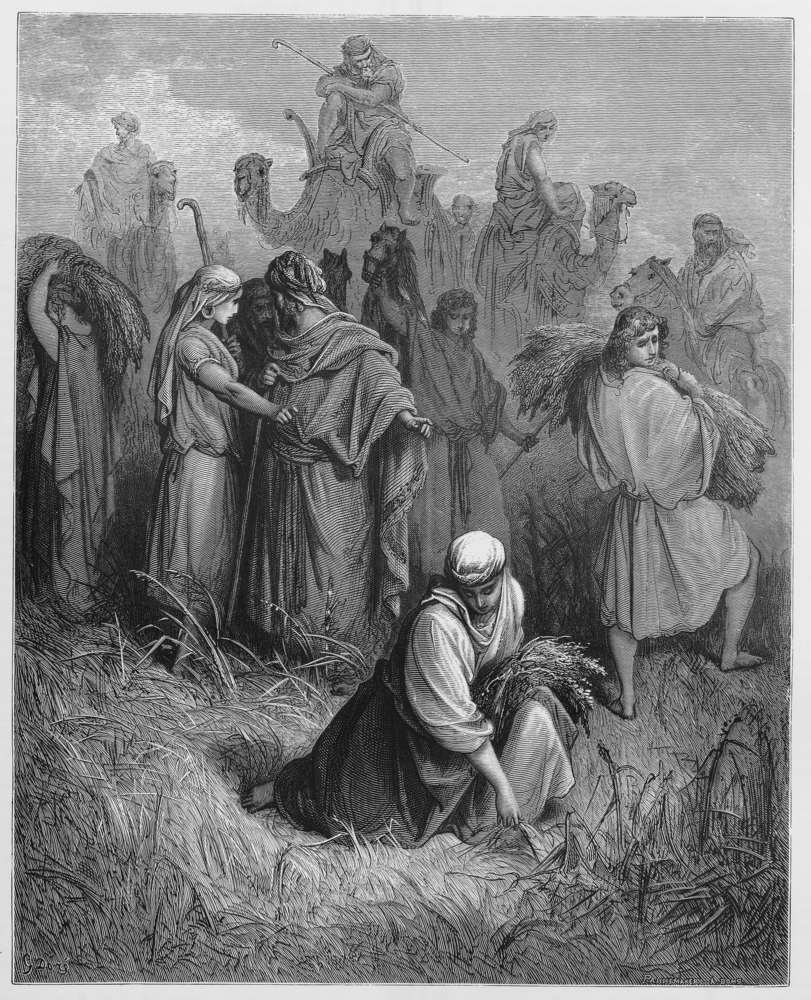Now that spring is here and quickly moving into summer, I am frequently aware of the activity of birds in my back yard as they busy themselves with building nests and raising broods of chicks. This activity in nature makes me mindful of God’s work in human lives as passages in both Old and New Testaments draw similarities between the two.
In the song of Moses, he reminds the people of Israel how God found them in a desert land and “he encircled [them], he cared for [them], he kept [them] as the apple of his eye. Like an eagle that stirs up its nest, that flutters over its young, spreading out its wings”[1]. The wings of God in this song signify the protection, provision and preservation of God for his chosen people. As the song continues, it specifies details of the many different ways God provided for them and the great extent to which God will protect them.
King David, who was desirous of God’s protection, echoed this metaphor as he prayed for God to “Keep me as the apple of your eye; hide me in the shadow of your wings, from the wicked who do me violence, my deadly enemies who surround me.” As he fled Saul and hid in a cave he wrote, “O God, be merciful to me, for in you my soul takes refuge in the shadow of your wings I will take refuge, till the storms of destruction pass by.” David prayed these prayers, not out of wishful thinking, but from a lived experience of God protecting him and giving him successes in the past which allowed him to also write, “for you have been my help, and in the shadow of your wings I will sing for joy.”[2]

So, of what do these “wings of God” consist? From what are we to derive this provision, protection, preservation and even joy from God? Is it wealth, power or prestige? No, the psalmists seem to stake this on the faithfulness of God. David wrote, “How precious is your steadfast love, O God! The children of mankind take refuge in the shadow of your wings.” Another psalmist penned, “He will cover you with his pinions, and under his wings you will find refuge; his faithfulness is a shield and buckler.”[3] God promises to be faithful through all our circumstances – he will outlast any of our troubles.
In the book of Ruth, a beautiful story unfolds about a non-Hebrew woman who married a Jewish man who had come to live in her country. When her husband dies, she decides to follow her mother-in-law back to Israel where she will live as a foreigner. In so doing, she chose to follow the God of Israel. As the widowed woman seeks to make a living by gleaning in the fields, she is blessed by a man named Boaz. Recognizing the sacrifice and choice she has made, he says to her, “The Lord repay you for what you have done, and a full reward be given you by the Lord, the God of Israel, under whose wings you have come to take refuge!”[4]

Observing the ordinances of God, Ruth is able to marry Boaz who was a kinsman of her former husband. In following after God, not only does she discover God’s provision and protection, but she also becomes part of the lineage of the coming Messiah. What is striking about the story of Ruth is not just what is afforded to those who come under the wings of God, but to whom such refuge is afforded.
Some are under the false impression that the Hebrews, because they are referred to as the “chosen people”, were an exclusive club which sought ethnic purity. While God strongly opposed those who made idols and worshipped false gods, He consistently commended the chosen people to leave room for any who would choose to seek and follow Him. The statutes regularly make provision for the sojourner and the foreigner. So, it is no new insight when the apostle Paul affirmed, “‘Everyone who believes in him will not be put to shame.’ For there is no distinction between Jew and Greek; for the same Lord is Lord of all, bestowing his riches on all who call on him. For ‘everyone who calls on the name of the Lord will be saved.’”[5]
With a tone of lament, Jesus also uses this metaphor in relation to the lack of response by the Jewish people to God’s efforts to reach out to them in history and through Jesus’ teaching and ministry as well. In this we see the interaction between the sovereignty of God and the free will of humans when he said, “O Jerusalem, Jerusalem, the city that kills the prophets and stones those who are sent to it! How often would I have gathered your children together as a hen gathers her brood under her wings, and you were not willing!”[6]

For those who willingly take refuge under the wings of God, they will find themselves, like the Jews in the wilderness, being gathered and led under His direction (this did not guarantee a trouble-free life). Like Ruth, they become part of what God is doing in history. Allowing God to be a directive force in your life does not entail a complete revocation of free will. There is some mystery here, I admit, but as we choose to follow God’s direction, we get to participate in His plans – a divine cooperation. As the apostle Paul writes, “Therefore, my beloved, as you have always obeyed, so now, not only as in my presence but much more in my absence, work out your own salvation with fear and trembling, for it is God who works in you, both to will and to work for his good pleasure.”[7]
Jesus recognizes that, despite there being an open door to this grand possibility, there are some who will not walk into it. It is not God’s intention to force us into cooperation. God’s approach to us has always been very nuanced. As Lewis wrote (from the perspective of demons trying to thwart God’s plans), “the Irresistible and the Indisputable are the two weapons which the very nature of His scheme forbids Him to use. Merely to override a human will…would be for Him useless. He cannot ravish. He can only woo.”[8]
If you find yourself battling through life, striving to live life your own way, I invite you to come in out of the storm and find refuge under the wings of God. There is always room for one more. For those who are already there, I wish you much joy in experiencing the faithfulness of God.
[1] Deuteronomy 32:10-1; Note: the term “apple of your eye” is an idiom referring to the pupil of eye. Because the eye was rightly understood to play a central role in vision, it was to be protected at all costs.
[2] Psalm 17:8-9, 57:1, 63:7
[3] Psalm 36:7, 91:4; compare also Psalm 61:4-7
[4] Ruth 2:12
[5] Romans 10:11-13 in which both Isaiah 28:16 and Joel 2:32 are quoted; see also Romans 3:22,29, Galatians 3:28, Colossians 3:11
[6] Matthew 23:37-39 and Luke 13:34-35
[7] Philippians 2:12-13
[8] C. S. Lewis, The Screwtape Letters, chapter 8
Insightful and encouraging!
LikeLiked by 1 person